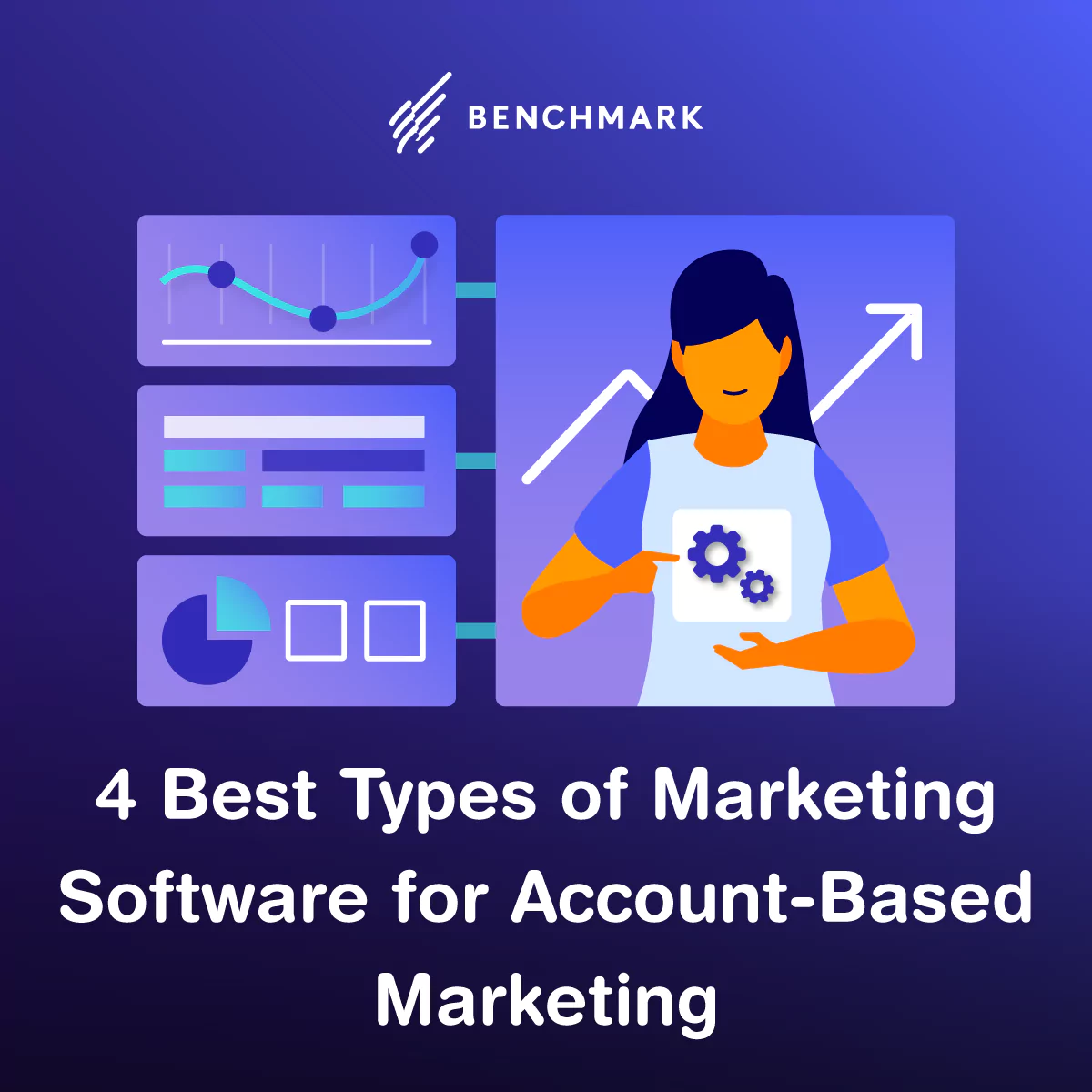4 Best Types of Marketing Software for Account-Based Marketing
October 8, 2020 4 min read

Account-based marketing is a collaborative approach to business that combines marketing, sales, delivery, and even key executives in an effort to reach a client’s business goals. In short, it completely changes the way marketers drive business.
Instead of chasing thousands of random leads and narrowing them down to the most viable prospects, ABM proposes you should identify the best prospects at the beginning, then dedicate your resources to working with these accounts. It also understands that most purchasing decisions are made by consensus instead of by one individual, so it aims to create agreement within the buying group.
ABM has come into its own in the digital age, and it’s really at its best when combined with the ideal marketing tools. The right software can create multiple benefits for the B2B sales force, including:
- Account-level analytics
- Account-level personalization
- Strategic alignment of the sales and marketing teams
- Improved account prospecting methods
The best marketing software for ABM combines most or all of these features. Different types have an emphasis on different areas of marketing; the right one for your business depends on your ABM goals.

Account Management Software
Account management software documents needed information and shares it between departments. These details can include sales and marketing communication, intelligence gathering, awareness of target accounts, and information about a company’s ongoing sales cycle.
These ABM management systems automate the transfer of crucial information between departments, communicate details between the marketing and sales departments, and manage the sales pipeline or marketing funnels.
Account management software systems also provide tools that make it easier for the entire sales process to be more account-centric, including:
- Tools that create target lists and filter out poorly fitting candidates
- Tools for both marketing funnels and sales pipelines
- Analytics tools that measure metrics and account engagement, including conversions, clicks, and calls, combined across all departments
Choose an account management system based on how well it aligns with your marketing department’s ABM strategy. It’s crucial that a product supports your internal workflow in order for you to get the most benefits from it.
Account Intelligence Products
Since account-based marketing eliminates the wide funnel of traditional marketing efforts, accounts need to be qualified before they’re included as leads. The only way to do this is with data.
Account intelligence products can connect the existing leads in a database with their accounts and provide data about them. They’ll then use this data to connect members of the marketing team to prospective accounts based on the ideal account details for each department member. This can eventually create a lead scoring engine, which can shorten the time it takes to optimize account lists.
These platforms generally focus on data like a company’s personnel hierarchy and contact information for each member. It can also expand to include:
- IP address data
- Data about business firms such as investment history or IT infrastructure
- Predictive marketing details
- Artificial intelligence used to score leads
Choosing the right account intelligence product depends on finding one with data that’s accurate, relevant to your industry, and compiled from a variety of sources. At its best, these programs will have effective lead qualification software.
Account-Based Advertising Programs
With expensive or complex sales, the buying decision usually lies within a committee, including members who will never come in contact with your sales force. Account-based ad targeting aims to sell to every individual in the decision-making process. These systems create highly personalized targeted ads designed to influence buying decisions and build brand awareness.
The systems separate the company by accounts and then deliver personalized ads on an account-by-account basis. They can segment the total ad audience by specific IP addresses, and the ad audience can even include website visitors to the target accounts through the use of cookies.
The right account-based advertising program for your needs will tie closely with your current marketing plans. Look for details such as how easily they create and orchestrate ad campaigns, how well they reach target audiences, and how much engagement they create.
Digital Personalization Software
Account-based marketing strategies often include creating content that caters to the individualized buying journeys of each member of the purchasing team. This can include personalized proposals and continuing sales conversations.
This software evolved from the A/B testing programs used for website optimization. When the software combines segmented audiences with the random split of A/B testing, you can end up with an experience customized to each person’s needs and interests. At its best, account-based personalization can create custom webpages designed specifically for each sale.
Finding the right version of this software for your company depends on how well each fits with your needs. Look for details like the ease with which it can reach IP addresses, the swiftness and ease of personalization, the flexibility of page design, the quality of the overall web experience, and the best engagement analytics.



